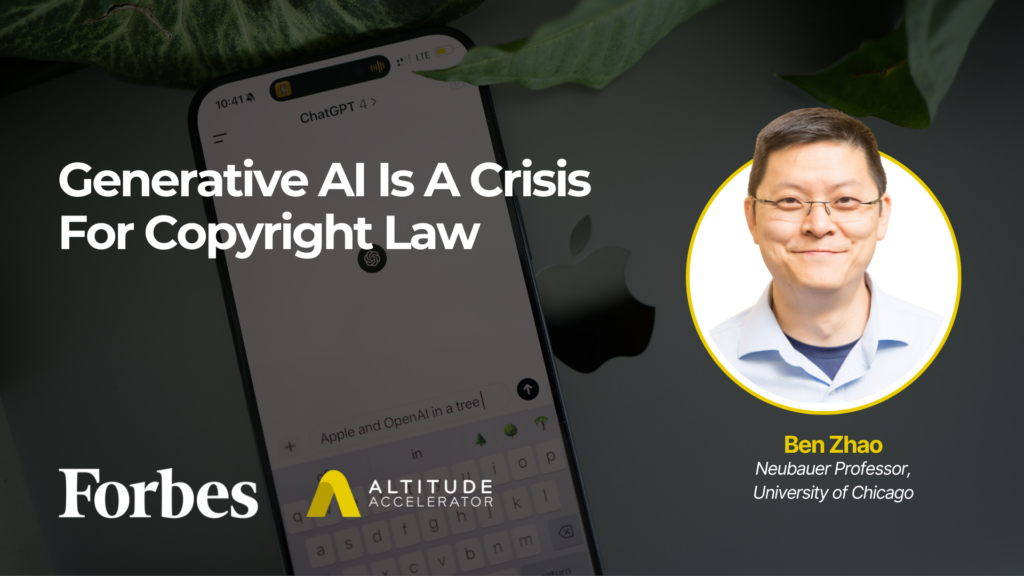Home » Generative AI: A Challenge for Copyright Law
Generative AI: A Challenge for Copyright Law

OpenAI unveiled a controversial image-generation feature called GPT-4o on March 25, allowing users to transform various visuals into styles reminiscent of Studio Ghibli, the iconic Japanese animation studio. This has sparked backlash, particularly from fans and co-founder Hayao Miyazaki, who has criticized AI art as "an insult to life itself," claiming it lacks the emotional depth central to true artistic expression. Miyazaki's stance highlights a broader concern over AI’s potential to undermine the essence of human creativity.
The launch of GPT-4o further complicates ongoing debates surrounding generative AI's implications for copyright law. With increasing lawsuits against AI companies related to copyright infringement, artists express fears of being overshadowed by technology capable of quickly and cheaply mimicking their styles. Recent legal cases, such as Getty Images suing Stability AI for $1.7 billion over alleged misuse of copyrighted photos, underscore the tension between AI and intellectual property rights.
In the wake of heightened scrutiny, tools like Nightshade and Glaze have emerged to help artists protect their copyrights. Nightshade has garnered 2.2 million downloads in 2024, and Glaze has seen 6.6 million downloads since its inception. These tools aim to safeguard artistic integrity by manipulating images in imperceptible ways that confuse AI models, thereby preventing unauthorized style replication.
The White House's Executive Order prioritizing global AI competitiveness has rejuvenated concerns regarding big tech's access to copyrighted material. OpenAI and Google have argued that limiting AI training on copyrighted content could hinder America’s technological edge. This has provoked backlash from artists, who issued an open letter opposing any moves to weaken copyright protections, emphasizing the broader implications for creative industries.
Prominent figures, including actor Joseph Gordon-Levitt, have voiced concerns that current AI strategies equate to legalizing theft, warning of a future where human creativity is exploited by tech companies without compensation. This sentiment reflects a widespread anxiety among artists and creators about the exploitation of their work by AI technologies.
Ben Zhao, a computer science professor at the University of Chicago, has focused his research on developing tools to combat these issues. Zhao has shifted his focus toward protecting creators from the harms of generative AI, which often undermine artistic livelihoods. He emphasizes that while AI technologies offer benefits, they also pose risks that necessitate protective measures.
Zhao’s tools, Glaze and Nightshade, operate on the principle of exploiting the perceptual gap between AI and human understanding. Glaze disrupts model training by altering pixel patterns in ways that remain invisible to the human eye, while Nightshade works to confuse AI's perception of images altogether. Both tools aim to protect artists from unauthorized imitation, ultimately advocating for fair compensation for creatives.
Concerns about the reliability and interpretative limitations of current AI technologies persist. Zhao argues that generative models often fall short of their promises and that their current applications may not genuinely benefit society. He criticizes the marketplace's focus on cost efficiency and warns against unregulated AI development that may exploit intellectual property rights.
As the legal landscape surrounding AI-generated content continues to evolve, the fundamental tension between technological advancement and the protection of individual rights remains a critical issue. These discussions underscore the necessity for a balanced approach that safeguards creativity while enabling innovation in the tech sector. The future of copyright in the era of AI poses pivotal questions about ownership, value, and the rights of creators in an increasingly automated world.
Altitude Accelerator
https://altitudeaccelerator.ca/
Altitude Accelerator is a not-for-profit innovation hub and business incubator for Brampton, Mississauga, Caledon, and other communities in Southern Ontario. Altitude Accelerators’ focus is to be a dynamic catalyst for tech companies. We help our companies grow faster and stronger. Our strength is our proven ability to foster growth for companies in Advanced Manufacturing, Internet of Things, Hardware & Software, Cleantech and Life Sciences. Our team consists of more than 100 expert advisors, industry, academic, government partners. The team helps companies in Advanced Manufacturing, Internet of Things, Hardware & Software, Cleantech and Life Sciences to commercialize their products and get them to market faster.


